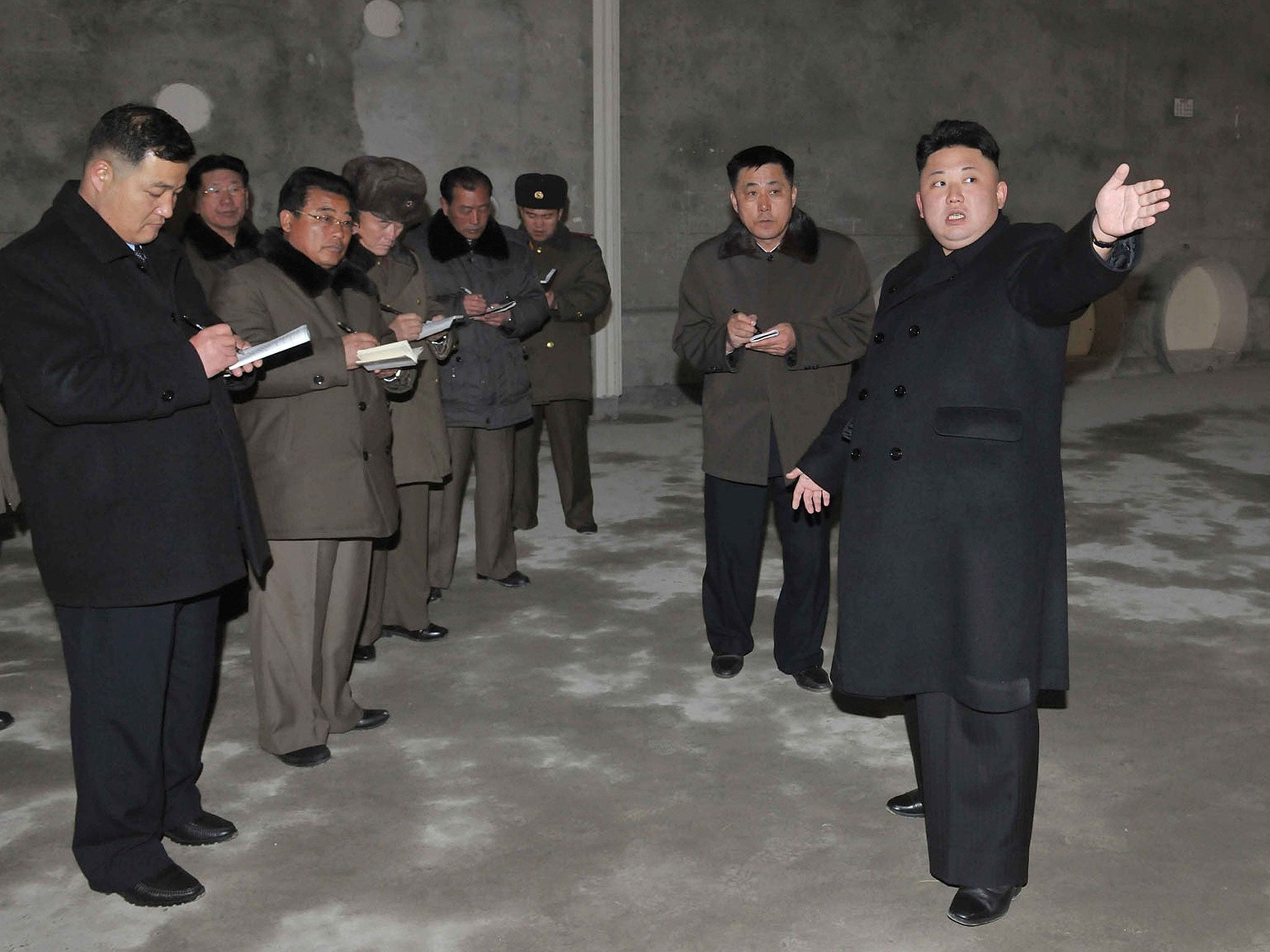North Korea uses 'sophisticated means' to avoid UN sanctions
Report also accuses country of using 'complicated financial measures' to make the country's purchase of illegal goods difficult to track

Your support helps us to tell the story
From reproductive rights to climate change to Big Tech, The Independent is on the ground when the story is developing. Whether it's investigating the financials of Elon Musk's pro-Trump PAC or producing our latest documentary, 'The A Word', which shines a light on the American women fighting for reproductive rights, we know how important it is to parse out the facts from the messaging.
At such a critical moment in US history, we need reporters on the ground. Your donation allows us to keep sending journalists to speak to both sides of the story.
The Independent is trusted by Americans across the entire political spectrum. And unlike many other quality news outlets, we choose not to lock Americans out of our reporting and analysis with paywalls. We believe quality journalism should be available to everyone, paid for by those who can afford it.
Your support makes all the difference.North Korea has developed sophisticated techniques to avoid UN sanctions, including the suspected use of its embassies to allow the illegal trade of weapons, a United Nations report has claimed.
The 127-page report said North Korea was also using more complicated financial countermeasures, making the country's purchase of prohibited goods more difficult to monitor.
"From the incidents analysed in the period under review, the panel has found that (North Korea) makes increasing use of multiple and tiered circumvention techniques," it concluded.
The report is part of an annual accounting of North Korea's compliance with UN sanctions imposed in response to Pyongyang's banned nuclear and missile programmes.
The eight-member panel said North Korean embassies in Cuba and Singapore were suspected of organising an illegal shipment of fighter jets and missile parts that were seized on a North Korean container ship in Panama last year.
Panama seized the Chong Chon Gang ship for smuggling arms from the Societ-era, including two MiG-21 jet fighters, under thousands of tonnes of sugar.
Cuba later acknowledged it was sending "obsolete" weapons to be repaired in North Korea and returned to Cuba after the discovery was made.
According to Reuters, the report states North Korea went to great lengths to obscure the origin of its merchant shipping fleet, and built a complicated corporate network outside the international financial system that it used to purchase both prohibited and permitted goods.
UN sanctions ban North Korea from shipping and receiving cargo related to its nuclear and missile programmes. The importation of some luxury goods is also banned, along with the unlawful transfer of bulk sums of cash.
The panel highlighted an example of an "unusually complex" transaction involving a contract by Air Koryo, the national carrier, to purchase new aircraft in 2012.
It said 109 payments were structured through eight Hong Kong-registered companies, which asserted they were trading partners of Air Koryo and were wiring funds they owed it.
The purchase of civilian aircraft is not prohibited under UN sanctions, but some of the companies appeared to have been recently formed shell entities, the report added.
The North Korean embassy in Singapore could not be contacted for comment, Reuters has reported.
On Monday, the North Korean leader Kim Jong-un was unanimously re-elected to the country’s parliament after every single eligible person in his constituency turned out to vote – with only his name on the ballot paper.
Each ballot had a single named listed with the option to pick “ yes” or “no”, providing a powerful tool for the government to check up on the movements and potential dissidence of the population.
Additional reporting by Reuters
Join our commenting forum
Join thought-provoking conversations, follow other Independent readers and see their replies
Comments